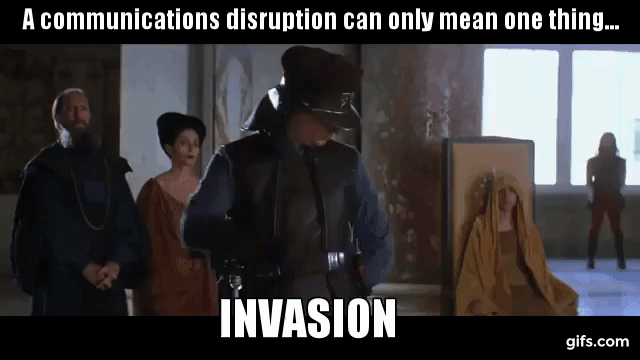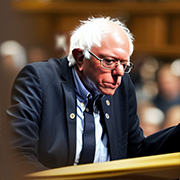- Xaris
- Jul 25, 2006
-

Lucky there's a family guy
Lucky there's a man who positively can do
All the things that make us
Laugh and cry
|
If anyone wants to highlight any of the best posts from the previous thread, or has helpful links that they would like to highlight, let me know and I’ll add them in a post below.

That there's no real side worth "rooting for" here because neither organized power meaningfully represents "the people" and both are horrible. And that people shouldn't be materially supporting the Ukraine military or otherwise providing war materials, because all those weapons are going to be used in really bad ways (or more accurately, they already are).
Russia stll holds responsibility for their actions because of the immense harm resulting from them*, but I don't really give a poo poo about "sovereignty" in this context. If Russia had somehow managed to pull off a (relatively, outside of some political and military leadership) bloodless coup, I wouldn't really care much and would probably consider it a marginal improvement over the status quo (basically like undoing the results of Euromaidan). So I think that Russia's actions are bad because they involve a war that is killing/maiming many civilians, but not because of anything having to do with "national sovereignty" (since I don't really care about the "sovereignty" of ultranationalists).
* Responsibility at least equally shared with NATO states
These aren't even remotely the same thing.
I think invading was wrong because of the damage to ordinary people, but I think Russia would have been entirely justified in increasing attempts to replace Ukrainian government leadership (just ones that don't involve firing artillery into cities). You can't just ignore the reality that Ukrainian politics have been successfully manipulated by NATO, a dramatically more powerful and harmful "faction" than Russia (literally anything Russia has done, the US/Nato have done far worse, to an extent where a comparison doesn't even really make sense). The fact that this manipulation involved the support of literal Nazi elements within the country (in the form of Ukrainian nationalists) just makes the situation even worse.
I think that's the thing that bugs me about how people are discussing this stuff. The Ukrainian government and military are really bad people. Ukrainian nationalists are guilty of great crimes against regular people. They are not synonymous with "the people of Ukraine." Hell, this is the whole reason why Russia's actions are wrong! They're effectively applying a sort of collective punishment to Ukraine. So the answer certainly isn't to root for the undemocratic government backed by NATO. The people guiding the response to Russia are horrible and have absolutely murdered a huge number of civilians as well.
The only response worth supporting is actions that help civilians/refugees. The Ukrainian "defense" does not do this. If anything, they've been shown to purposefully exacerbate the situation through forcing fighting in urban areas (because that's what fascists do - they see glory in death and are happy forcing other people to accept this "glory").


MSJ posted:
A little bit of historical context but I want you to think of NATO at the end of the Soviet Union. Because what choices did NATO have? Number one, had it wanted to, it could have offered inclusion to Russia itself. If you're looking for a significant player in a 'North Atlantic Treaty', a Russia, even a reduced Russia, even a Gorbachev democratic socialist Russia had it been allowed to transpire would have been a significant player in the region, no? Or you could acknowledge that the entire purpose of NATO had been to stand as a bloc against the Soviet bloc, and in the absence of a Soviet bloc, there was really no purpose for NATO. The thing had served out it's time, we could let it disintegrate, right?. No, that's not what we did, because some men, the same kinds of men who were helping Nazi industrialists hide their money in 1941, with names like last names like Bush, could see further into the future.
Number one, we weren't going to let Russia turn into a democratic-socialist Nordic welfare state. And we didn't.
And so, CIA and others affected a coup there and installed a fat gently caress called Boris Yeltsin. During the Yeltstin years, we and our brethren, or transnational siblinghood of global capital, just absolutely stripped Russia down to the loving copper and wires, and then sold those too. Even the bricks. The things we did during the 90s were just utterly depraved. A lot of the mood was pretty well captured by The Exile, Mark Ames and so forth. And we took them for everything they could be taken for. Quite assured, in the prospect that, Yeltsin, as long as he personally was kept fed and fat and drunk and supplied with hookers, wouldn't do anything about it. And he didn't.
And there was a member of Yeltsin's cadre, so a little known KGB colonel we had no concern about at the time, and who we would grow increasingly concerned with years to come, sat and saw this go down.
At the end of the Soviet Union, we did not opt for mass renegotiation for supposed 'world peace and stability' that had been ostensible the entire purpose of NATO this entire time, right??? We got Gorbachev to believe that NATO was not going to going to an inch further than Germany. And then we stole everything we could steal out of the former USSR.
And then while plucking like loving daisies, plucked up every single former soviet border country we could and including them in NATO, and doing what we do best: putting weapons there. And those weapons are often American, and those weapons are often nuclear. So since the Berlin wall fell and all that bullshit, all we did was strip Russia down to the barest possible bones economically, then surround it with countries all of them full of US weaponry pointing directly at it, just in time for the Russian economy to improve enough vis-à-vis the largest salesman of oil & gas to the EU that suddenly they have something we want again.
So like this sudden heroism, eternal right, of self-determination, of a people most Americans couldn't give a gently caress about 10 years, hell most couldn't give a gently caress 5 years ago, this must be summoned because we're in a position they have something we want. And what we want is to surround them with weapons to place ourselves at the head of their economy which is selling ungodly, unholy, amounts of oil and gas to the Europeans. So that degree of influence may be whom they are allowed to sell to, and whom they aren't allowed to sell to, at what price. You know, like maybe stopping and controlling Russia-China interactions and perpetuation of the petrodollar. It's not a series of coincidences; not merely opportunistic men navigating circumstances in front of them, yes there's some of that, but there were people back in the 1990 who very much foresaw the growth of Russia as a oil state as the major supplier to the mainland. Right around the time Deng Xiaoping was turning China to what it is today. They have littered weapons around the continents to prevent Russia from any degree of self-determination.
This isn't an apologia for Putin, he's an awful son of bitch, and we don't know what he's done yet. And the contours of the military incursion aren't clear. And he's probably done the stupidest thing in his life that will, if not outright kill him, then at least probably disposed. There's no good to come from a partial or total invasion. Just simply saying it is profoundly disingenuous for liberals to act as if this just suddenly sprung up, as if it hasn't occurred as part of our designs on the region for the last several decades
Speaking of designs, lets talk about Ukraine. Cause what they probably think of is Ukraine from 2014-on. Brave, embattled Ukraine. Maiden Square Ukraine. Fighting to be free. Huddled masses all using laptops to do revolutions. Lets talk about that Maiden revolution. Here's an interesting fact you might not know about the Maiden revolution. It had all it's infrastructure set-up before anything actually happened, before any protests started. The general way the protests were going to go, the general architecture of how this uprising was going to proceed, was all in place already. You want to know who put it in place?
USAID, that is such a wing of the CIA that we haven't even pretended otherwise since 1950s, the National Endowment for Democracy, likewise something no one even bothers to pretend it isn't, and various wings of the Omidyar Group. Now you hear Omidyar, you might think of an episode with Ken Silverstein, formerly of The Intercept, at the time was convinced that The Intercept was a CIA honeypot: that what it did was attract whistleblowers and sit on as much information that was brought to them as possible and get them arrested, and it also attracted people who fancy themselves as 'serious leftist journalists' and then policed the limits of what accepted 'leftist journalism' meant. It cut it in to ways: it sure no one leaked anything too explosive, and as the "premiere leftist publication" and made sure no one could get anything actually left published. It also ensured Jeremy Scahill could make documentaries wearing different hats from many different regions sitting on a railing of a boat going into different channels, it was excellent for that. Well, the man who owns and runs The Intercept is one Pierre Omidyar, you know, a member of the PayPal mafia: tight with Elon Musk and Peter Thiel, and early stockholder in Amazon, so tight with Jeff Bezos.
You know, the people you want to have political associations with when your business is going to be "liberating countries from under the thumb of post-soviet evil". And in addition to USAID and NED, Omidyar got into pre-Maiden Ukraine and set up a number of concerns, one he called 'Center UA', a vague ill-defined project to amplify 'the voices of otherwise voiceless Ukrainians'. Now what do you think that means when they say "the Ukrainians that aren't being heard"?
Well, what we're talking about is Nazis, what we're talking about is Banderites. So along with Center UA, Omidyar also set up a regime-change media network called Hromadske, that was broadcasting pro-overthrow, pro-western, vaguely 'free speech', vaguely democratic, propaganda the months before anything happened at Maiden. And then, my favorite, before anything happened at Maiden, he set up a fact checking service for western news agencies who were going to be sending people into the Ukraine. So when CNN, or Reuters, or AP, has a reporter come in, and that story gets submitted for fact-checking, that fact-checking is being done by people who set up the fake revolution. And the fake-revolution, as I have just alluded to, backed not so much by photogenic young college hippies that you saw so much of in the newspapers and internet back then, but by a group of people whose interest in Ukraine is not exactly political in the strict sense, they aren't really concerned with the Ukraine in terms of it's economic borders, it's GDP, it's population growth, it's division into various statuary sectors. It's not politics in a theoretical sense, it's a politics in the knock your teeth out sense, the people we've been supporting in the Ukraine since Maiden, since before Maiden, the same people we have in fact been training at our military facilities at Fort Bragg. You know, Fort Bragg, the same place where 95 soldiers have either been murdered or killed themselves in the last two years and there are no investigations, the same Fort Bragg where there seems to be an endemic child rape and human trafficking problem that no one has done any serious investigation of except Seth Harp. But certainly not any internal investigation.
The people we trained? Yeah.... they're Nazis. We are preparing, if we have any say in this, if 'we win' or whatever the gently caress that means, we are preparing for a Ukraine run by nazis who are of the core belief that the Russian language the Russian culture, Russian blood, are Asiatic contaminants to the true Slavic culture, and the true Slavic Ethnopolitical rendering of the word, that should and must rule the region of Ukraine. That's who we hand power over to. The scary thing, one of the many scary things, of this current manifestation of this war in Ukraine is there are any number of scenarios where no one clearly wins, and everyone loses a little bit, and yet we are still able to hand over a big chunk of what used to be a unified Ukraine to Banderas and Nazis whose first item on the agenda are going to go Russian hunting. Chris Hedges posted:
The United States, as the near unanimous vote to provide nearly $40 billion in aid to Ukraine illustrates, is trapped in the death spiral of unchecked militarism. No high speed trains. No universal health care. No viable Covid relief program. No respite from 8.3 percent inflation. No infrastructure programs to repair decaying roads and bridges, which require $41.8 billion to fix the 43,586 structurally deficient bridges, on average 68 years old. No forgiveness of $1.7 trillion in student debt. No addressing income inequality. No program to feed the 17 million children who go to bed each night hungry. No rational gun control or curbing of the epidemic of nihilistic violence and mass shootings. No help for the 100,000 Americans who die each year of drug overdoses. No minimum wage of $15 an hour to counter 44 years of wage stagnation. No respite from gas prices that are projected to hit $6 a gallon.
The permanent war economy, implanted since the end of World War II, has destroyed the private economy, bankrupted the nation, and squandered trillions of dollars of taxpayer money. The monopolization of capital by the military has driven the US debt to $30 trillion, $ 6 trillion more than the US GDP of $ 24 trillion. Servicing this debt costs $300 billion a year. We spent more on the military, $ 813 billion for fiscal year 2023, than the next nine countries, including China and Russia, combined.
We are paying a heavy social, political, and economic cost for our militarism. Washington watches passively as the U.S. rots, morally, politically, economically, and physically, while China, Russia, Saudi Arabia, India, and other countries extract themselves from the tyranny of the U.S. dollar and the international Society for Worldwide Interbank Financial Telecommunication (SWIFT), a messaging network banks and other financial institutions use to send and receive information, such as money transfer instructions. Once the U.S. dollar is no longer the world’s reserve currency, once there is an alternative to SWIFT, it will precipitate an internal economic collapse. It will force the immediate contraction of the U.S. empire shuttering most of its nearly 800 overseas military installations. It will signal the death of Pax Americana.
Democrat or Republican. It does not matter. War is the raison d'état of the state. Extravagant military expenditures are justified in the name of “national security.” The nearly $40 billion allocated for Ukraine, most of it going into the hands of weapons manufacturers such as Raytheon Technologies, General Dynamics, Northrop Grumman, BAE Systems, Lockheed Martin, and Boeing, is only the beginning. Military strategists, who say the war will be long and protracted, are talking about infusions of $4 or $5 billion in military aid a month to Ukraine. We face existential threats. But these do not count. The proposed budget for the Centers for Disease Control and Prevention (CDC) in fiscal year 2023 is $10.675 billion. The proposed budget for the Environmental Protection Agency (EPA) is $11.881 billion. Ukraine alone gets more than double that amount. Pandemics and the climate emergency are afterthoughts. War is all that matters. This is a recipe for collective suicide.
There were three restraints to the avarice and bloodlust of the permanent war economy that no longer exist. The first was the old liberal wing of the Democratic Party, led by politicians such as Senator George McGovern, Senator Eugene McCarthy, and Senator J. William Fulbright, who wrote The Pentagon Propaganda Machine. The self-identified progressives, a pitiful minority, in Congress today, from Barbara Lee, who was the single vote in the House and the Senate opposing a broad, open-ended authorization allowing the president to wage war in Afghanistan or anywhere else, to Ilhan Omar now dutifully line up to fund the latest proxy war. The second restraint was an independent media and academia, including journalists such as I.F Stone and Neil Sheehan along with scholars such as Seymour Melman, author of The Permanent War Economy and Pentagon Capitalism: The Political Economy of War. Third, and perhaps most important, was an organized anti-war movement, led by religious leaders such as Dorothy Day, Martin Luther King Jr. and Phil and Dan Berrigan as well as groups such as Students for a Democratic Society (SDS). They understood that unchecked militarism was a fatal disease.
None of these opposition forces, which did not reverse the permanent war economy but curbed its excesses, now exist. The two ruling parties have been bought by corporations, especially military contractors. The press is anemic and obsequious to the war industry. Propagandists for permanent war, largely from right-wing think tanks lavishly funded by the war industry, along with former military and intelligence officials, are exclusively quoted or interviewed as military experts. NBC’s “Meet the Press” aired a segment May 13 where officials from Center for a New American Security (CNAS) simulated what a war with China over Taiwan might look like. The co-founder of CNAS, Michèle Flournoy, who appeared in the “Meet the Press” war games segment and was considered by Biden to run the Pentagon, wrote in 2020 in Foreign Affairs that the U.S. needs to develop “the capability to credibly threaten to sink all of China’s military vessels, submarines and merchant ships in the South China Sea within 72 hours.”
The handful of anti-militarists and critics of empire from the left, such as Noam Chomsky, and the right, such as Ron Paul, have been declared persona non grata by a compliant media. The liberal class has retreated into boutique activism where issues of class, capitalism and militarism are jettisoned for “cancel culture,” multiculturalism and identity politics. Liberals are cheerleading the war in Ukraine. At least the inception of the war with Iraq saw them join significant street protests. Ukraine is embraced as the latest crusade for freedom and democracy against the new Hitler. There is little hope, I fear, of rolling back or restraining the disasters being orchestrated on a national and global level. The neoconservatives and liberal interventionists chant in unison for war. Biden has appointed these war mongers, whose attitude to nuclear war is terrifyingly cavalier, to run the Pentagon, the National Security Council, and the State Department.
Since all we do is war, all proposed solutions are military. This military adventurism accelerates the decline, as the defeat in Vietnam and the squandering of $8 trillion in the futile wars in the Middle East illustrate. War and sanctions, it is believed, will cripple Russia, rich in gas and natural resources. War, or the threat of war, will curb the growing economic and military clout of China.
These are demented and dangerous fantasies, perpetrated by a ruling class that has severed itself from reality. No longer able to salvage their own society and economy, they seek to destroy those of their global competitors, especially Russia and China. Once the militarists cripple Russia, the plan goes, they will focus military aggression on the Indo-Pacific, dominating what Hillary Clinton as secretary of state, referring to the Pacific, called “the American Sea.”
You cannot talk about war without talking about markets. The U.S., whose growth rate has fallen to below 2 percent, while China’s growth rate is 8.1 percent, has turned to military aggression to bolster its sagging economy. If the U.S. can sever Russian gas supplies to Europe, it will force Europeans to buy from the United States. U.S. firms, at the same time, would be happy to replace the Chinese Communist Party, even if they must do it through the threat of war, to open unfettered access to Chinese markets. War, if it did break out with China, would devastate the Chinese, American, and global economies, destroying free trade between countries as in World War I. But that doesn’t mean it won’t happen.
Washington is desperately trying to build military and economic alliances to ward off a rising China, whose economy is expected by 2028 to overtake that of the United States, according to the UK’s Centre for Economics and Business Research (CEBR). The White House has said Biden’s current visit to Asia is about sending a “powerful message” to Beijing and others about what the world could look like if democracies “stand together to shape the rules of the road.” The Biden administration has invited South Korea and Japan to attend the NATO summit in Madrid.
But fewer and fewer nations, even among European allies, are willing to be dominated by the United States. Washington’s veneer of democracy and supposed respect for human rights and civil liberties is so badly tarnished as to be irrecoverable. Its economic decline, with China’s manufacturing 70 percent higher than that of the U.S., is irreversible. War is a desperate Hail Mary, one employed by dying empires throughout history with catastrophic consequences. “It was the rise of Athens and the fear that this instilled in Sparta that made war inevitable,” Thucydides noted in the History of the Peloponnesian War.
A key component to the sustenance of the permanent war state was the creation of the All-Volunteer Force. Without conscripts, the burden of fighting wars falls to the poor, the working class, and military families. This All-Volunteer Force allows the children of the middle class, who led the Vietnam anti-war movement, to avoid service. It protects the military from internal revolts, carried out by troops during the Vietnam War, which jeopardized the cohesion of the armed forces.
The All-Volunteer Force, by limiting the pool of available troops, also makes the global ambitions of the militarists impossible. Desperate to maintain or increase troop levels in Iraq and Afghanistan, the military instituted the stop-loss policy that arbitrarily extended active-duty contracts. Its slang term was the backdoor draft. The effort to bolster the number of troops by hiring private military contractors, as well, had a negligible effect. Increased troop levels would not have won the wars in Iraq and Afghanistan but the tiny percentage of those willing to serve in the military (only 7 percent of the U.S. population are veterans) is an unacknowledged Achilles heel for the militarists.
“As a consequence, the problem of too much war and too few soldiers eludes serious scrutiny,” writes historian and retired Army Colonel Andrew Bacevich in After the Apocalypse: America’s Role in a World Transformed. “Expectations of technology bridging that gap provide an excuse to avoid asking the most fundamental questions: Does the United States possess the military wherewithal to oblige adversaries to endorse its claim of being history’s indispensable nation? And if the answer is no, as the post-9/11 wars in Afghanistan and Iraq suggest, wouldn’t it make sense for Washington to temper its ambitions accordingly?”
This question, as Bacevich points out, is “anathema.” The military strategists work from the supposition that the coming wars won’t look anything like past wars. They invest in imaginary theories of future wars that ignore the lessons of the past, ensuring more fiascos.
The political class is as self-deluded as the generals. It refuses to accept the emergence of a multi-polar world and the palpable decline of American power. It speaks in the outdated language of American exceptionalism and triumphalism, believing it has the right to impose its will as the leader of the “free world.” In his 1992 Defense Planning Guidance memorandum, U.S. Under Secretary of Defense Paul Wolfowitz argued that the U.S. must ensure no rival superpower again arises. The U.S. should project its military strength to dominate a unipolar world in perpetuity. On February 19, 1998, on NBC’s “Today Show”, Secretary of State Madeleine Albright gave the Democratic version of this doctrine of unipolarity. “If we have to use force it is because we are Americans; we are the indispensable nation,” she said. “We stand tall, and we see further than other countries into the future.”
This demented vision of unrivaled U.S. global supremacy, not to mention unrivaled goodness and virtue, blinds the establishment Republicans and Democrats. The military strikes they casually used to assert the doctrine of unipolarity, especially in the Middle East, swiftly spawned jihadist terror and prolonged warfare. None of them saw it coming until the hijacked jets slammed into the World Trade Center twin towers. That they cling to this absurd hallucination is the triumph of hope over experience.
There is a deep loathing among the public for these elitist Ivy League architects of American imperialism. Imperialism was tolerated when it was able to project power abroad and produce rising living standards at home. It was tolerated when it restrained itself to covert interventions in countries such as Iran, Guatemala, and Indonesia. It went off the rails in Vietnam. The military defeats that followed accompanied a steady decline in living standards, wage stagnation, a crumbling infrastructure and eventually a series of economic policies and trade deals, orchestrated by the same ruling class, which deindustrialized and impoverished the country.
The establishment oligarchs, now united in the Democratic Party, distrust Donald Trump. He commits the heresy of questioning the sanctity of the American empire. Trump derided the invasion of Iraq as a “big, fat mistake.” He promised “to keep us out of endless war.” Trump was repeatedly questioned about his relationship with Vladimir Putin. Putin was “a killer,” one interviewer told him. “There are a lot of killers,” Trump retorted. “You think our country’s so innocent?” Trump dared to speak a truth that was to be forever unspoken, the militarists had sold out the American people.
Noam Chomsky took some heat for pointing out, correctly, that Trump is the “one statesman” who has laid out a “sensible” proposition to resolve the Russia-Ukraine crisis. The proposed solution included “facilitating negotiations instead of undermining them and moving toward establishing some kind of accommodation in Europe…in which there are no military alliances but just mutual accommodation.”
Trump is too unfocused and mercurial to offer serious policy solutions. He did set a timetable to withdraw from Afghanistan, but he also ratcheted up the economic war against Venezuela and reinstituted crushing sanctions against Cuba and Iran, which the Obama administration had ended. He increased the military budget. He apparently flirted with carrying out a missile strike on Mexico to “destroy the drug labs.” But he acknowledges a distaste for imperial mismanagement that resonates with the public, one that has every right to loath the smug mandarins that plunge us into one war after another. Trump lies like he breathes. But so do they.
The 57 Republicans who refused to support the $40 billion aid package to Ukraine, along with many of the 19 bills that included an earlier $13.6 billion in aid for Ukraine, come out of the kooky conspiratorial world of Trump. They, like Trump, repeat this heresy. They too are attacked and censored. But the longer Biden and the ruling class continue to pour resources into war at our expense, the more these proto fascists, already set to wipe out Democratic gains in the House and the Senate this fall, will be ascendant. Marjorie Taylor Greene, during the debate on the aid package to Ukraine, which most members were not given time to closely examine, said: “$40 billion dollars but there’s no baby formula for American mothers and babies.”
“An unknown amount of money to the CIA and Ukraine supplemental bill but there’s no formula for American babies,” she added. “Stop funding regime change and money laundering scams. A US politician covers up their crimes in countries like Ukraine.”
Democrat Jamie Raskin immediately attacked Greene for parroting the propaganda of Russian president Vladimir Putin.
Greene, like Trump, spoke a truth that resonates with a beleaguered public. The opposition to permanent war should have come from the tiny progressive wing of the Democratic Party, which unfortunately sold out to the craven Democratic Party leadership to save their political careers. Greene is demented, but Raskin and the Democrats peddle their own brand of lunacy. We are going to pay a very steep price for this burlesque. Mark Ames posted:AM: But of course the most absurd point of this whole thing is how much the US has interfered in every country’s election and government in the last century, as you mentioned, and I want you to go more into this: interference in what you call the 1996 stolen election where Yeltsin took power. Talk about what the US did in that election.
MA: Yeah, so I actually interviewed… I did the reporting on this. I interviewed, with Alex Zaitchik, the head of the OSCE mission, which is the election observer mission, which is basically a Western European-led body. He was a British MP, and he straight up said the election was stolen. It was fraudulent and “the OSCE did everything to wash my report,” and so it was officially known as free and fair. There was fraud in every single Russian election. I mean it was fairly significant fraud by our standards, not hugely significant, let’s say, by some hardcore dictatorial standards, but certainly three, four, five percent was often stolen and the template was really set in the 1996 elections that got Boris Yeltsin from about a 3% [approval] rating.
Boris Yeltsin in his five years in office dragged Russia into a war in which about 100,000 people were killed, and they lost. The average life expectancy of a Russian male plummeted from 68 years to 56 years. It had a death to birth ratio perhaps never seen in the 20th century, even during war times. People were just dying like flies everywhere. There was no state support, just pure banditry starting with Yeltsin at the top, all the way down. So he had actually… unlike Putin—say what you will about him—but I think even his enemies agree he is very popular. They might blame it on the propaganda, but he is popular. His ratings are still in the 80th percentile range, and he’s always been popular. With Yeltsin you had to perform a miracle. This guy was absolutely hated and is still one of the probably two or three most hated Russians in modern history for what he did to the country. And so it was a tough job, and Clinton was also running for re-election that year [1996], and Clinton did not want to be known as the president who “lost Russia” if Yeltsin’s communist opponent won.
Among other things there were American advisers, of course, advising them, but the Treasury Department—we found out about this when we were reporting on this— the Treasury Department was actually drafting decrees on the creation of capital markets, on the legal structure of the economy. 1996 also was the year that we introduced the new 100-dollar bill for the first time and Yeltsin’s two top campaign managers were caught by police during the campaign, about a month or two before the election, carrying giant boxes, Xerox boxes full of new hundred-dollar bill notes when we were flying them in, and the Russian media was reporting it at the time. And the top journalists, liberal journalists, were reporting that. We knew that stacks and stacks of hundred-dollar bills would be flown in, brought to the US Embassy, and then presumably from there to the central bank, but this was during the election. Anyway, the Russians believe, and that’s what matters the most, even the liberal Russians believe that we financed covertly in that way. We financed very overtly by approving more World Bank and IMF loans for Russia than any country in history at that time. We bankrolled the whole thing and then in the end they still had to steal the election. In Chechnya where—again between 50 and a 100 thousand people were killed there—villages which had been wiped out voted 90, voted actually probably 150% for Yeltsin. This was in Chechnya and no one wanted to hear it. No one reported it. There was some election theft in 1999-2000 when Putin won, but Putin again was Yeltsin’s appointed successor. The people who he was running against were more overtly nationalist, more virulently anti-Western, and then when Putin started… Basically, the first big sin that Putin committed was he didn’t support the invasion of Iraq, and suddenly that’s when we started to notice election fraud is a problem there.
AM: Before 1996 there was 1993 when you mentioned that The New York Times, as well as Bill Clinton, actually helped subvert the first democratically elected parliament.
MA: There were basically two rival bodies that were both elected democratically in Soviet times. This is Yeltsin in the executive branch and the Supreme Soviet which was the Parliament which was very powerful up until October 1993. Yeltsin had his idea of how they wanted to do privatization which was like shock therapy, mass privatization. Yeltsin’s people were directly funded by, trained by and advised by USAID [United States Agency for International Development] and by Harvard. Harvard basically ran Russia’s privatization program, and then it turned out that the top Harvard people under Andrei Shleifer and Jonathan Hay who ran the whole [project] setting up their capital markets, setting up their privatization programs, both of them wound up eventually being prosecuted by the Department of Justice for insider dealing. They would set up rules for the mutual fund market and then they would give no-bid tenders to their wives to start up a fund that would get all this Russian state money, and they did all kinds of insider dealing. Again, all this stuff we’ve forgotten because it didn’t hurt us, but none of these people have forgotten—people that are in power in Russia now—what we did.
So Yeltsin and the young reformers, as they were called, that were backed by Americans, had their ideas and the Supreme Soviet had its ideas, which were probably more egalitarian. They all kind of agreed that they needed to bring in some market forces and some privatization, and break up the state monopolies, but they weren’t sure how. Yeltsin then decided that he didn’t want to fight it out with the Parliament anymore, so he just unilaterally and illegally abolished the Parliament, and eventually sent in tanks and helicopters, and about 500 to 1,000 people were killed. We completely backed it up —the New York Times editorials and Clinton openly backed him up, immediately sent him 10 billion dollars more of IMF aid when they did this. That was right when I moved to Russia. I moved a couple weeks before into the same district. Bullets were flying everywhere, and it was pretty crazy. I watched tanks fire into the Parliament building and saw a huge explosion go out and Americans cheered it on, and in fact, a couple Americans were killed watching that. They were shooting everybody, and after Yeltsin succeeded in that, his forces succeeded in subduing the Parliament. Again, we backed them up, and then he had an election a couple months later. They created a new constitution, and—this is also really important—created a new constitution which vested really all power in the presidency, which is what allowed for Putin to become as powerful as he is today. Again, we backed that up, and USAID paid PR agencies like Burson-Marsteller to help promote these referendums on that, and on the privatization vouchers. We were behind everything. It was essentially a colony. There is no other way to put it. It was like a colony, a defeated power, and we screwed it up hugely.
AM: Let’s talk more about the economic structure. You lived under Yeltsin for years, since right after the fall of the Soviet Union. You describe these years as a neo-liberal fire sale when Russia was essentially colonized by foreign capital. Talk specifically about what that means.
MA: In one specific way you had all these very valuable assets as we now know, state oil companies, some of the largest in the world. Russia has the number one or two largest oil reserves in the world, a third of the world’s natural gas, 70% of the world’s palladium, I think. 1/3 of the world’s nickel—all this stuff. And all of these industries were auctioned off in rigged auctions which were advised by and backed by the US Treasury Department, so this is one way all of these state enterprises, which employed a lot of people, were sold to a handful of oligarchs. Sometimes they didn’t really even pay for them. The way they paid for them was these oligarchs owned banks which became Finance Ministry or treasury vehicles, so if you needed to pay teachers and doctors, the treasury didn’t have a way of disseminating it, so they disseminated it through an oligarch’s bank network. The oligarchs would take the money and hold up paying teachers. There were teachers and workers who weren’t paid for 2 or 3 years at a time while the oligarchs took the money, and spun it around, and our advice always while this was happening was Russia needs to tighten its belt more. It can’t pay its teachers because it needs tighten its belt more. Well, in fact we were creating a class of international capitalists in the belief that if we could restructure the economy along the kind of oligarchical lines we would bring them into our system. They would be subordinate to us and their natural resources would become basically an appendage of the Western economy. That was the hope, and it did kind of go that way for a while, but it was devastating. It was absolutely devastating, and we may want to roll our eyes at the 90s because, again, we didn’t suffer, but Russians suffered enormously then, and honestly I’m surprised they’re not more angry with us about that.
I didn’t see the anger really explode until we bombed Kosovo in 1999. Then suddenly all these Russians turned against us, and it all kind of started make sense to them, but before then you had the most equal society where the privileged people had a somewhat nicer dacha or the really privileged ones maybe had a car, or the super, super privileged had a car and a driver, but no one was a billionaire, and there certainly weren’t millions and millions of people starving in the streets or half starving in the streets. So you went from the world’s most equal society to the world’s most unequal society in a very short period of time. It was incredibly traumatic, and so Putin was brought in. When he first appeared there was this great relief, I think, for a lot of Russians because he was a guy who a) didn’t drink, and b) seemed serious, and he seemed like somebody who was more seriously interested in not doing any more experiments on the country. The Russians kept saying, “We don’t want to be experimented on anymore,” and the American attitude was: “OK we experimented on you, and you died on the operating table. Clearly it’s your fault. We need a better patient than you.” Certainly by the end of the 1990s democracy was a bad word in Russia. It was just equated with stealing from everybody.
AM: Paint the picture for us at the end of the 90s. What did life look like then?
MA: Yeah, so at the end of the 90s, look, you had the Americans and the international credit institutions like the World Bank and IMF running everything. All the newspapers, all the Western media constantly cheering on Russia: It’s doing great. It’s doing great. It’s going do better. It’s going to overcome all of its problems, and it was clearly not. The Russian press kind of knew it wasn’t, and then at the end of 1998 the entire house of cards collapsed. It was at the time the greatest financial collapse, financial markets collapse in history. The stock market fell 95%-98%—something like that. The ruble completely collapsed. Nobody could even get money anymore. There was talk about food shortages. I think there was a time in 98-99 when something like one third of the country lived on subsistence farming. Now this is a northern country where there’s not much farmland. What it means is in their dachas they grew food and they needed it to supplement whatever diets they had to live. This was the end result of 10 years of us influencing, guiding, advising, and manipulating the Russian political economy. So they were looking for something else, and then, as I said, in 1999 we unilaterally went ahead to bomb Kosovo in Yugoslavia. I guess you could say the emerging pro-Western middle-class types even sort of said, “Wow. Maybe those cranky old communist and nationalists were actually right about you guys all along. We’re next, aren’t we?” They got very freaked out by that. It was coming out that IMF money was going directly into secret bank accounts and then being kicked back to even Michel Camdessus who was the head of the IMF. He was implicated in getting kickbacks of money he approved to Yeltsin. It was the craziest time. Everything was stolen.
AM: I wanted to briefly talk about why Yeltsin chose Putin. What did he do to protect the oligarchy?
MA: Yeltsin was desperate. He was sick. He’d been pretty sick since probably 1995-96. He was surrounded by what they called the Yeltsin family clan, which were a lot of oligarchs, and even his own family members, actually. And they were all worried that should Yeltsin die, somebody that they couldn’t rely on may come and take power, and prosecute them, so this was the atmosphere that Yeltsin was in in 1999. There was also going to be an election in 1999, and they were starting to worry that if they were to lose the election, or they didn’t have a strong successor to Yeltsin, or even prime minister, that they were all going to go down, and it was a legitimate worry. The mayor of Moscow was turned against them. Parts of the of the deep state we’re turning against Yeltsin, and Yeltsin had named Vladimir Putin as his head of the FSB, the Intelligence Agency, in late 1998. I think it was in mid-1998, and he was proving very trustworthy and loyal. As head of the FSB he was starting to do what he could to protect Yeltsin, and when the general prosecutor started opening up cases against Yeltsin family clan members for theft of state property, Putin arranged filming of the general prosecutor—he would be like our attorney general—having sex with two prostitutes. He put it on television. Yeltsin saw that and said, “This is my man, and he’s going to protect me.”
AM: During the Yeltsin era there were countless assassinations of journalists, of political dissidents. This was going on in conjunction with this horrific time of inequality and joblessness, and everything like that. Why didn’t the US care about press freedoms in Russia then, like it does now?
MA: Again, because it was a vassal state. It wasn’t a threat. It was a vassal state and what we really cared about was keeping Russia as weak as possible and getting access to the resources, and enormous resources, not just in Russia but in the Caspian Sea countries: Azerbaijan, Kazakhstan and Turkmenistan. We wanted those resources, so we could give him a free pass as long as we could get ahold of the loot there.
It’s a good point. Look, when I got there, shortly after I got there, one of the most popular young Russian journalists, Dmitry Kholodov—this was 1994—and he was investigating Yeltsin’s really powerful defense minister for one of the big Russian dailies, Moscow Komsomolets, and he was publishing some pretty sensational stuff about really appalling corruption that was going on that the defense minister was responsible for. Yeltsin knew about it, and so they set him up. They said there’s a briefcase full of sensational documents and with this you’re going to be an even bigger star. They had a very, very vibrant, open, wild press at this time, way freer than ours in terms of the range and the aggressiveness of the media towards power. Kholodov got the briefcase, opened it up, and it killed him, blew him up. Everybody in the media called out Yeltsin: “How could you not fire your defense minister?” Everybody knew what happened, but again this is a question of heating rods. We kept saying, “Well, if we weaken Yeltsin in any way, the Communists could come to power, so we’ve got to keep our criticism quiet.” And we did this over and over and over—journalist after journalist, opposition figure after opposition figure—people being killed left and right. We just said, “No, to talk about it is to destabilize Yeltsin. To destabilize Yeltsin means bringing back the Communists. And so we have to keep our mouths shut.”
By the time I started The Exile in 1997 with Matt Taibbi, the Russian media had been through its first consolidation. Basically, it was all pretty free before, and very wild and unruly. During the election that was stolen by Yeltsin 1996, the American advisers advised Yeltsin to consolidate all the television media under his own wing so that it became one state media, including what people thought was the independent media, and to hand out favors to these people and advise them to lie. So they created this reality during the 1996 campaign creating fear of a Communists win. It was propaganda nonstop on television showing people hanging from lamp posts and people in gulags. And then after Yeltsin won, the complete oligarch-ization of Russia meant that the entire media after that was one of the favors handed out. So this oligarch had this newspaper, this television network and this whatever, and then all journalists at that point suddenly worked for oligarchs, and again, remember Russia at this time was the focus of the empire. It was our number one colony, and it was the project of the century for the American empire.
AM: Right, it’s like the Red Scare, except there are no Reds. Russia is capitalist. It’s an oligarchy. We collaborated on that front. What is the threat today that Russia poses to the US Empire that is causing this insane hysteria and aggression?
MA: We got very used, after the end of the Cold War, to being able to do whatever we wanted wherever we wanted, and the only thing holding us back was our own amazing sense of justice or whatever, but there was no countervailing power. We’ve seen in Syria where Russia went in and succeeded with actually a much more strategically coherent objective, which was to back the government and their forces. And just that alone is very deeply threatening to people who are used to having their own way. It’s a threat to full spectrum dominance, so I guess it’s a threat on that level. Xaris has issued a correction as of 23:41 on Nov 3, 2022
|












































